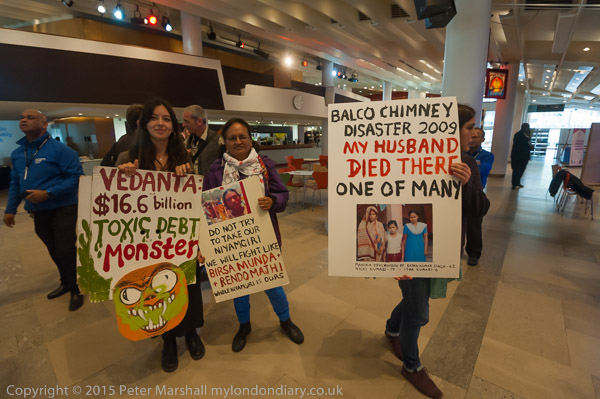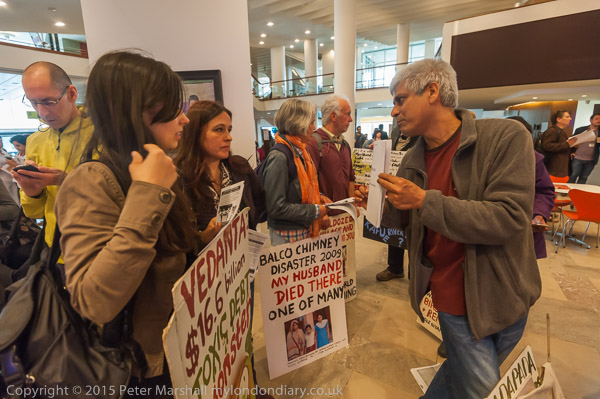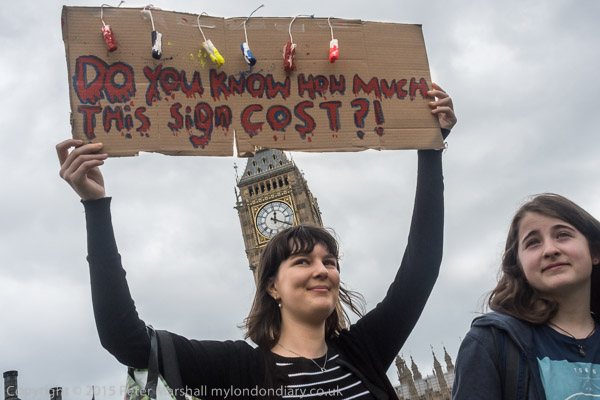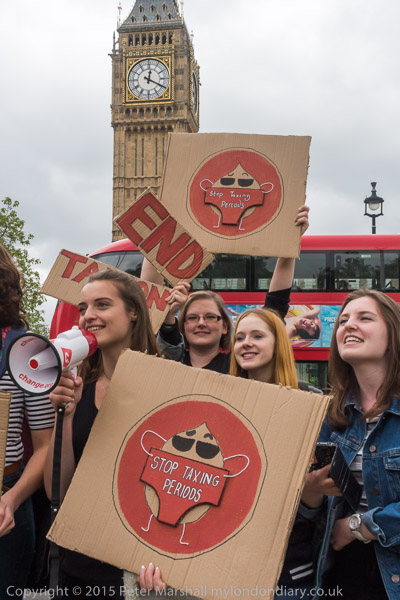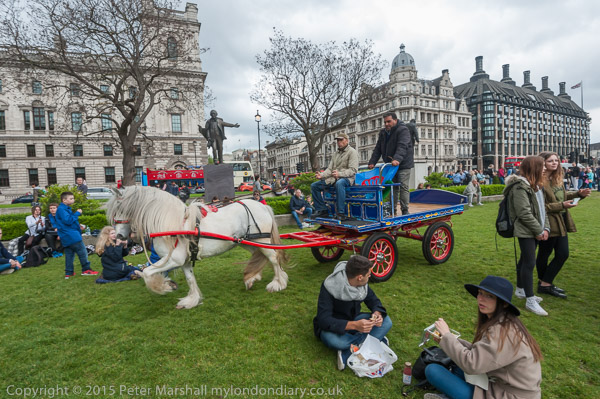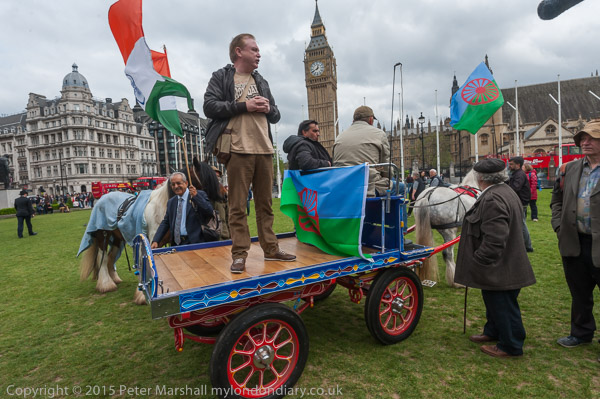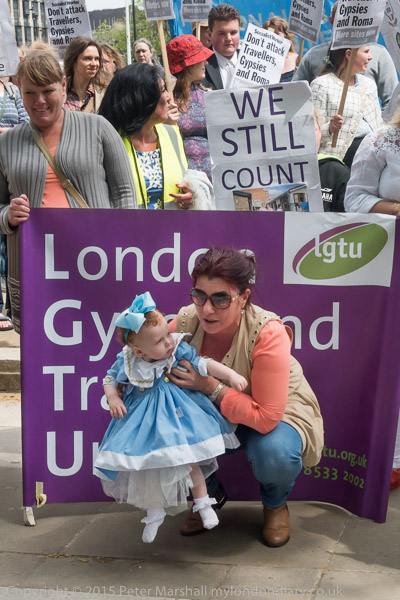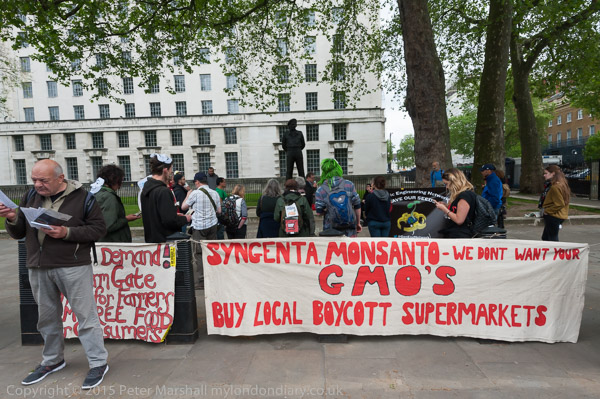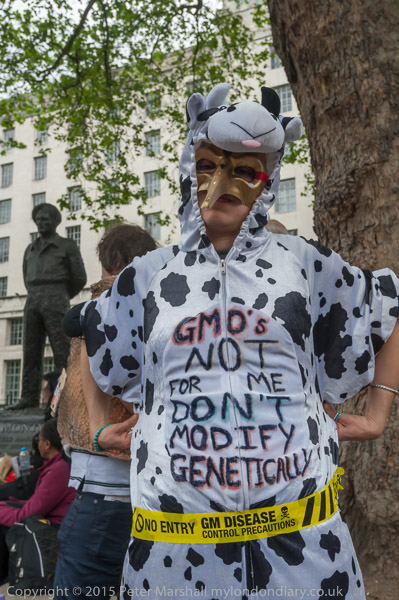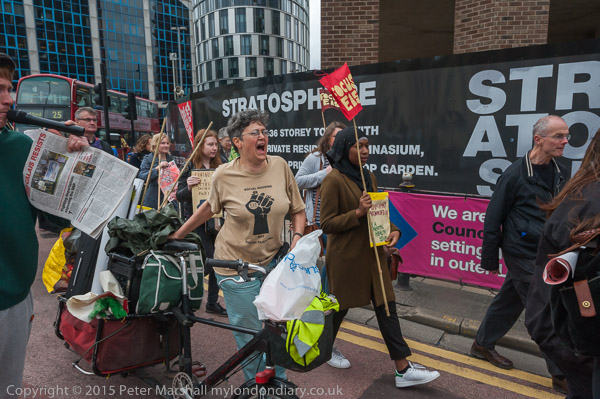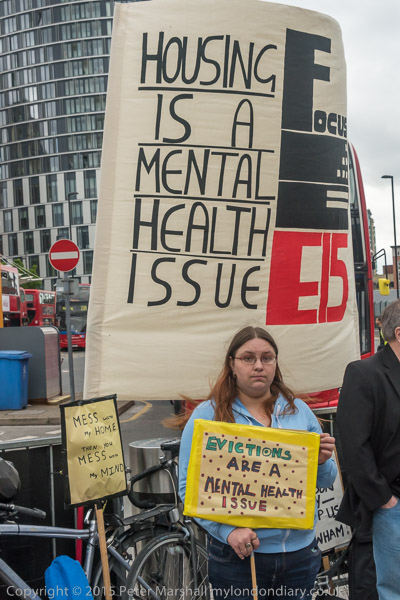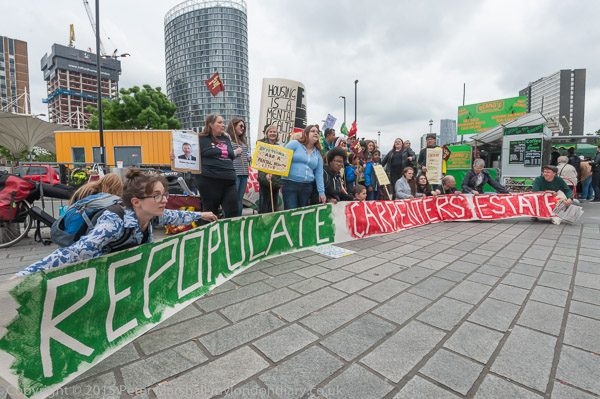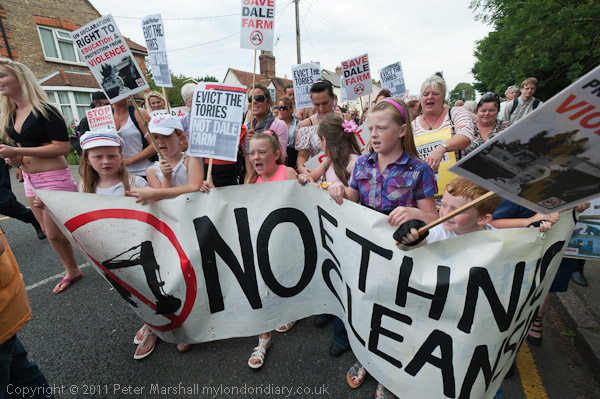
I had been following the events around Dale Farm with interest, but had decided that travelling to the site where some colleagues in the NUJ had been covering events for some time was too difficult and time-consuming. What was happening there was already getting considerable media coverage and I could add little to it and my time and very limited resources would be better spent on less high profile events.
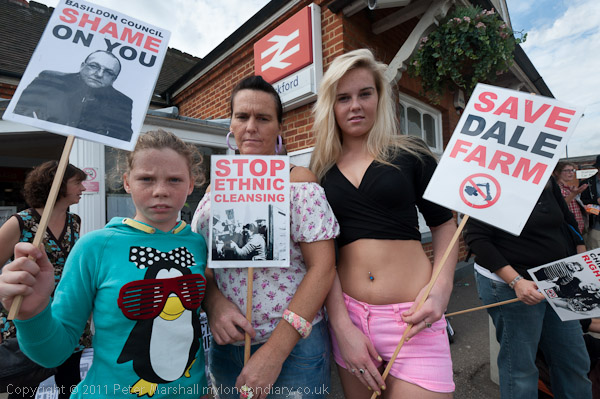
So I’d not been to Dale Farm, and didn’t go to the eviction which finally took place on 19th October, but my interest in what was taking place there did prompt me to go down to a protest march from Wickford Station to the Dale Farm site on Saturday 10th September 2011.
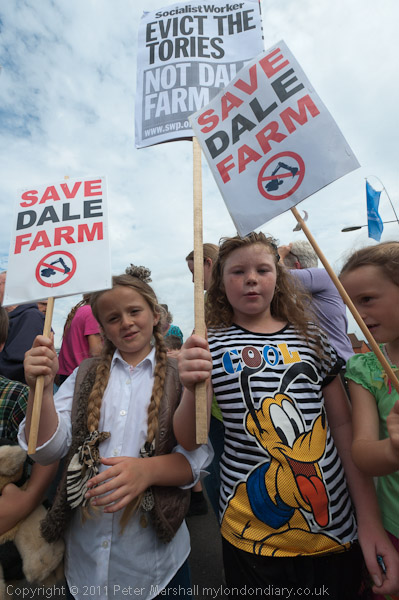
My earliest involvement with travellers had been in the 1960s, when a group who had been evicted from other sites in the city encamped for some time on land close to and owned by the university. Along with many other students I went to the site and met many of the residents as well as attempting to stop the university from evicting them.
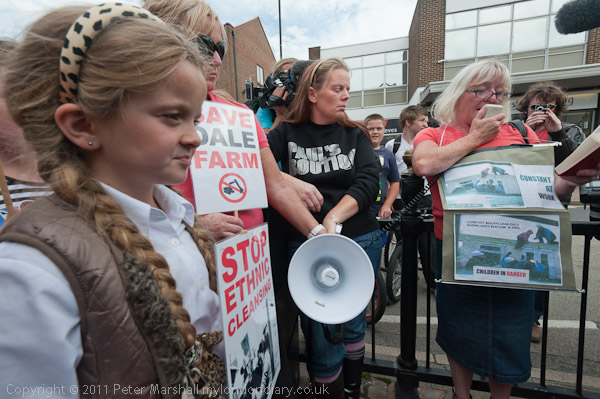
Travellers move around during much of the year but during winter want to settle in a fixed site. Local authorities have the powers to provide sits but not a duty to do so. In January 2011 according to the twice-annual government surveys there were roughly 18,000 traveller caravans with almost 7,000 on authorised public sites and a further 8,000 on authorised private sties, with around 2,500 on unauthorised sites.
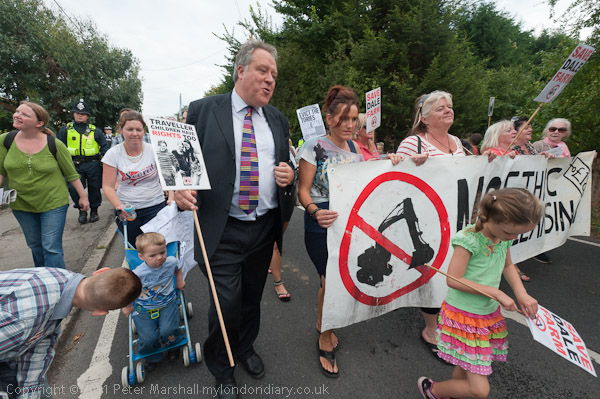
In 2021 research showed long waiting lists for pitches on public sites, with almost 1700 on the list but only 59 permanent and 42 transit pitches available nationwide. And many of those available had be labelled as “not fit to use” and “in a terrible state” by locals, with 20 having no electricity available. Travellers call for an end to the increasing harassment of those on unauthorised land and a statutory duty on authorities to meet the need to provide sites – and police also see this as the solution to unauthorised encampments.
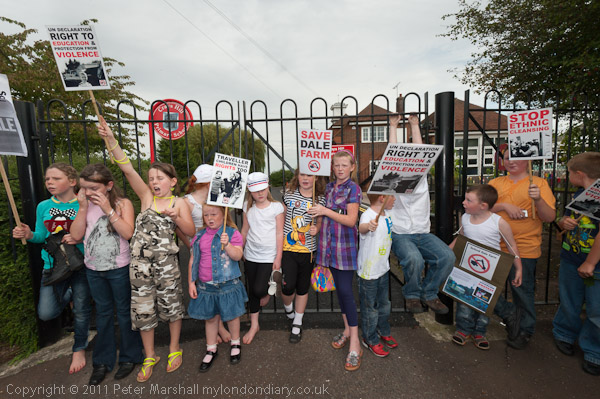
Wikipedia states that Travellers first settled around Dale Farm in the 1960s on Green Belt land that was in use as an unauthorised scrap yard. Eventually following legal battles with Basildon Council some on a part of the site were granted limited permission to remain on a small area of the site, Oak Farm, and are still there. Travellers bought the land from the scrap dealer who had been bankrupted by costs for breaching Green Belt provision in 2002 and the site began to grow, becoming the largest Traveller site in Europe.
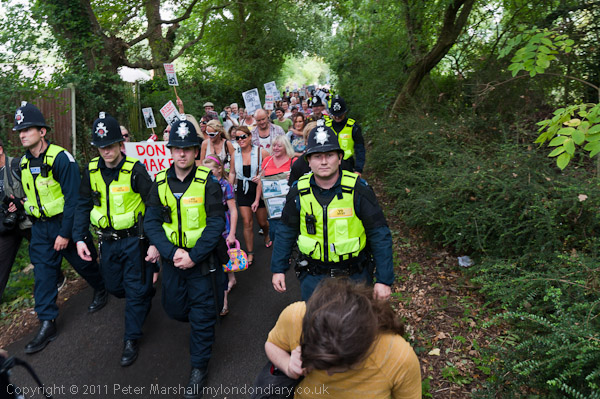
The council, who had used part of the site as a dumping ground for tarmac and rubble from roadworks refused to give any further permissions on the grounds it was Green Belt, and legal battles continued. Deputy Prime Minister John Prescott became involved in 2003 with an order intended to give the Travellers and Basildon Council two years to come to an agreement, but they made no progress. Legal battles continued, with the residents winning their case in the High Court in 2008 only to see this reversed by the court of appeal in 2010.
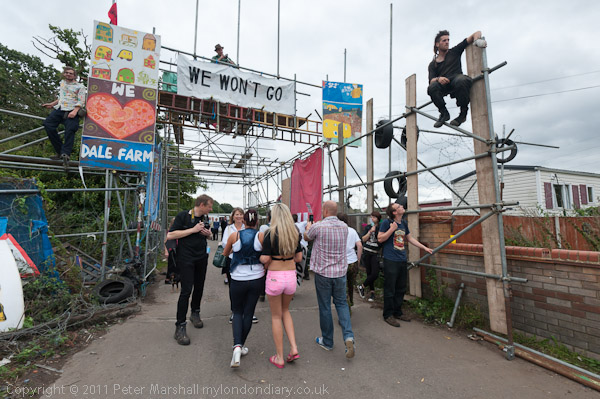
The Wikipedia article gives considerable details on the legal battles and the process of eviction, carried out with considerable force by bailiffs and police, providing those press who had been barricaded inside the site with residents for some days with some dramatic images. Many of the travellers had left not long after this march several weeks before the eviction to avoid the violence, camping illegally elsewhere.
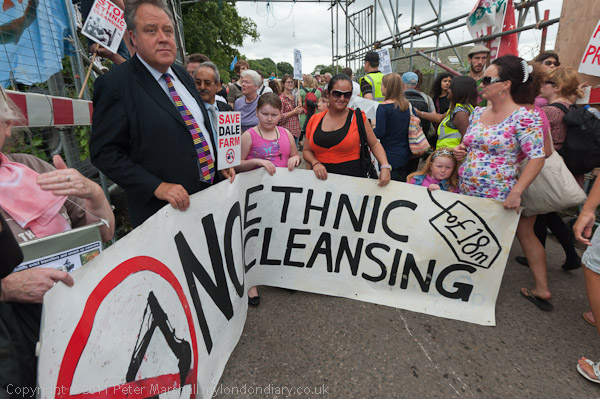
Years later the rubble of the former illegal settlement created by the eviction remained on the site in what the Daily Mail described as “polluted wasteland blighted by rubbish and the decaying remains” despite Basildon Council’s claim at the time of the eviction it would return the site to Green Belt. It is so bad that many Travellers in the adjoining legal site Oak Farm now want to leave the area.
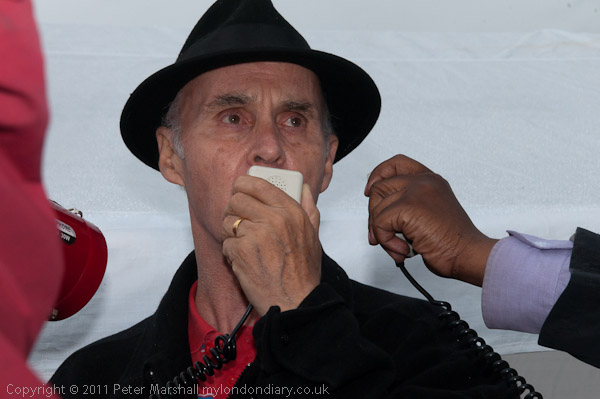
The march on Saturday 10th September took place while Travellers were still living on the site and hoping still to be able to stay there. My report in My London Diary gives a long account of the event and picture captions add to this.
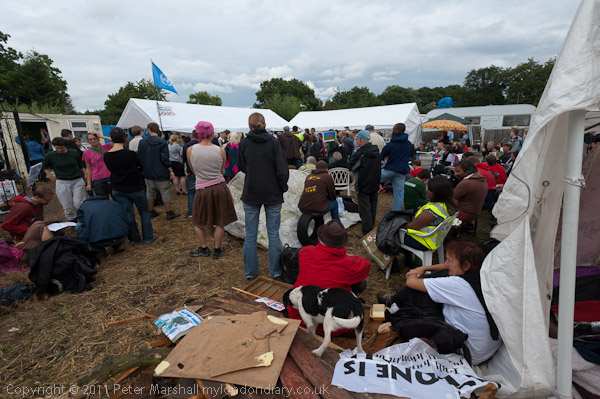
As I noted in it, the only slight unpleasantness came not from the Travellers but one of their supporters who tried to stop the press coming on to the site. After around ten minutes one of the women leading the Travellers insisted we should be allowed in to report the rally.
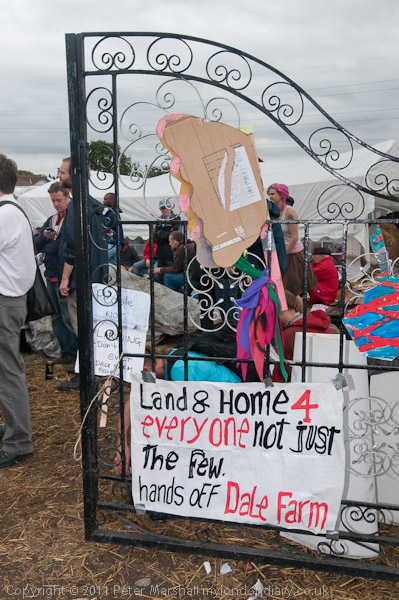
Basildon Council had throughout seemed determined not to accept solutions to the battle proposed by others, including the Homes and Communities Agency who had put forward an alternative site, and it was hard not to see their attitude to the Travellers as fundamentally driven by racism. The UN Committee on the Elimination of Racial Discrimination had a week or so before the march called on the Council to find a peaceful and appropriate solution and suspend the “immature and unwise” eviction, saying it would “disproportionately affect the lives of the Gypsy and Traveller families, particularly women, children and older people“.
March Supports Dale Farm Against Evictions

